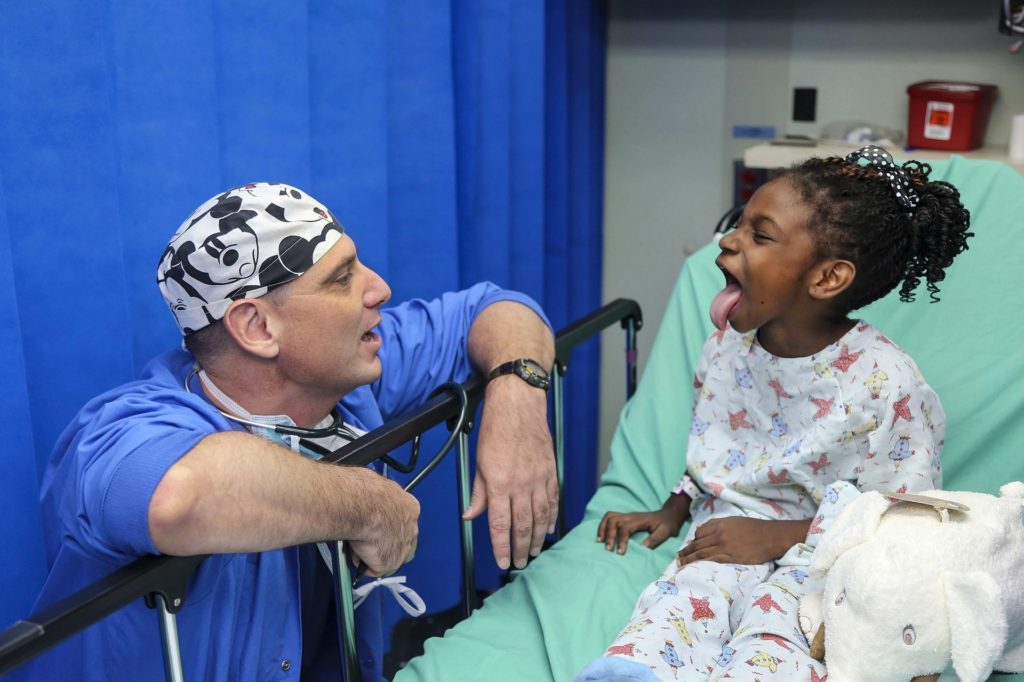
Interpreting in the field of biohealth is underdeveloped in many countries despite its usefulness in this globalized world. Hospitals receive many foreign patients, from tourists to migrants, people who, upon retirement, establish permanent residence in another country, and even patients from the so-called ‘health tourism’ segment, who travel abroad to find the best possible surgeon. Many of them do not speak the local language and often do not speak English either. This is why serious communication problems often arise between doctors and patients.
Multilingual interpreting in hospitals: a necessary service
Not all hospitals around the world have a translation and interpreting service. Often professionals are hired independently, but in other cases family members, friends or acquaintances accompany them to the center unaware of the responsibility that their presence will entail: they are working as medical translators and interpreters.
Not all patients, however, are fortunate enough to have this well-meaning company. This is even more true in emergency situations. And hospitals should not depend on it. These jobs, carried out by non-professional interpreters, unspecialized in medical translation, lack rigor and quality. And, on more occasions than we can imagine, they can even be dangerous.
That is why many health care centers are contemplating the possibility of using a professional translation and interpreting agency. These kinds of interpreting services are provided either in person or remotely by video conference or telephone, ensuring greater availability, both in terms of immediacy and linguistic variety.
In many countries the use of specialized interpreters in the biomedical sector is already becoming standardized; multicultural societies make this increasingly necessary. In fact, the high demand for these professionals wherever this service has been implemented highlights the need for this profession to be regulated.
The emergence of professional medical interpreting
The aim of this service is to facilitate and enable communication between health personnel and the patient and the patient’s family. The main function of the interpreter is to accompany the patient from the moment of arrival at the medical center, but they also have a fundamental role in administrative paperwork, helping with the necessary documentation for admission or consultation, dealing with private insurance procedures, visits to the emergency room, tests, or even with clinical history, until the patient leaves the hospital.
All this has led to the need for a new specialization in translation and interpreting: biomedical interpretation. In the same way that translators and interpreters cannot translate into all languages, they are also not prepared to translate any subject, especially when we are talking about very specific specializations or very technical subjects. The issue of specialization becomes increasingly important with biomedical, where it is not only necessary to master a language like a native, but also to have certain medical knowledge and master the concepts that are employed in medical translation. This is a job in which, in addition to demonstrating semantic and lexical accuracy, interpreters must also demonstrate impartiality and objectivity as interpreters and be accustomed to working under the influence of other factors, such as social factors (sex, ethnicity, age, cultural and socioeconomic level).
Thus, specialized master’s degrees and courses have appeared that complete the training of people with degrees in Translation and Interpreting, Nursing, Pharmacy, Biology, Philology, and related studies. The key issue is that this task be carried out by a specialist, a professional interpreter with the necessary specific knowledge.
The presence of the medical interpreter in health care centers and hospitals
Although this is not a new specialization, it is surprising that even today, many health systems in the world’s most touristic countries have not yet considered incorporating this service, whether free or paid, into hospitals, health care centers or clinics. Currently, medical centers that do not have reliable translation and interpreting options frequently use doctors or administrative staff who work in the health care center and have knowledge of both languages, a practice that is not highly recommended due to the lack of availability and necessary knowledge.
At Seprotec we offer advice on the best option for on-site or remote interpreting to be implemented in each health care center, depending on its characteristics, patients, and the types of services provided there. In something as essential as health care, we cannot recommend strongly enough the use of biomedical interpreting professionals.





